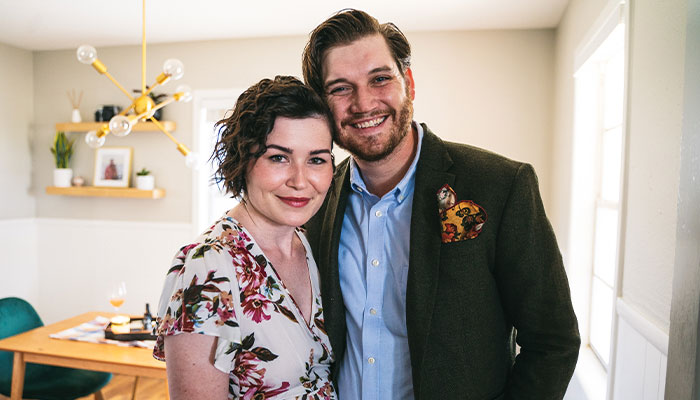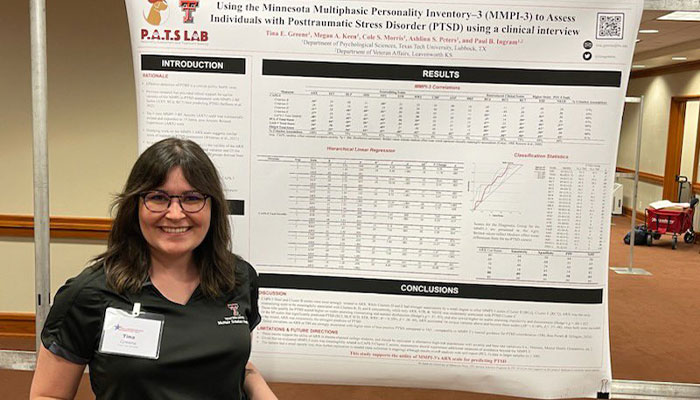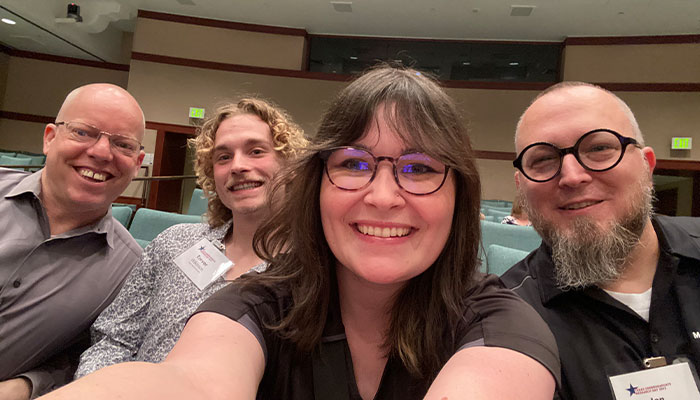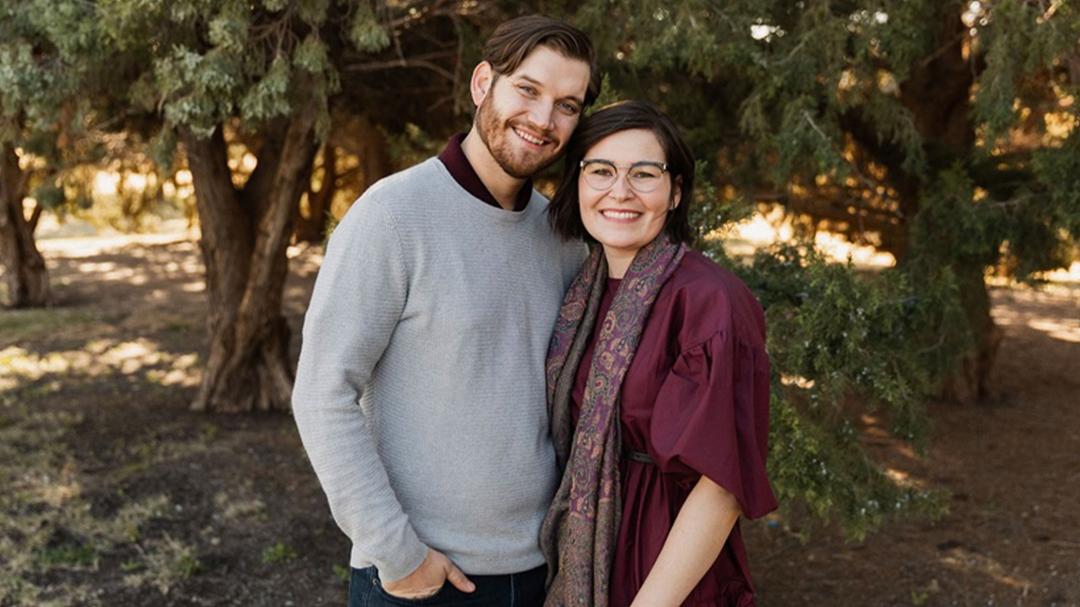Texas Tech and the McNair Scholars Program is a winning combo for Tina Greene.
A hairstylist can sometimes act like a therapist. They know all about their client’s personal life, the good and the bad. And for California native Tina Greene, that was true for a long time. They used to work as a hairdresser doing commercial work and magazine photoshoots. Their career didn’t necessarily need a college degree. But, like many, the pandemic shook up what life looked like.
Greene received their Associate of Art in 2014 in Costa Mesa, California. Soon after, they decided to get their cosmetology license. Greene loved working in a fun, artistic environment, helping others express themselves and feeling their best. But in 2020, they noticed friends and family were having issues accessing mental health resources during the pandemic, and they wanted to do something about it.

“I never thought I would really have the opportunity to attend a four-year university,” Greene said. “But after the pandemic started, I decided it was time to go back to college.”
Wanting to help their loved ones, Greene decided to go back to college with the hope of eventually earning a doctorate.
“I Googled different mental health positions and saw psychologists need a Ph.D. and I thought. ‘If I can do everything I’ve done in my career so far, why can’t I do this?’” Greene said.
Despite living in Southern California, Greene is no stranger to Texas Tech University. Their partner’s entire family are Texas Tech alumni, and Greene always felt drawn to the student-focused values Texas Tech offers. Greene attributes their decision to attend Texas Tech to two things: the community and the post-graduation connections.

Moving across the country can be an intimidating task but having support from family and friends can make it a bit easier. Greene’s partner decided to take his business to Texas, where they could both be surrounded by his family. It felt like a better time than ever to take this new next step.
Life as a first-generation nontraditional college student was new for Greene.
They felt more drawn to school and learning than ever. But it was Jon Crider’s history class in January 2021 that changed everything. Crider’s email signature included the logo for McNair Scholars, which piqued Greene’s curiosity.
“I emailed him and was like, ‘I want to know what this is. I’m interested in graduate school; I’m a first-generation student and I have no idea what I’m doing,’” Greene said. “We talked for more than an hour, and later on when a slot opened up, Crider thought of me. I applied and was selected to join. I attribute my success as an undergraduate researcher to the McNair Scholars Program.”
The two-year McNair Scholars Program prepares first-generation and low-income and/or underserved undergraduate students for doctoral studies through involvement in research and other scholarly activities. Each semester, the program assists 30 students through workshops, mentorship, and research funding.
Through the McNair Scholars Program, Greene found their mentors, Paul Ingram and Christy Rogers. Ingram oversees the Personality Assessment and Treatments Lab (PATs Lab), and Rogers heads the Social Influence on Brain and Socioemotional Development Lab (SIBS Lab). Working in those labs, Greene was able to explore their interests and was pleasantly surprised by how they could dive deeply into hands-on research as an undergraduate student.
Ingram said Greene is the type of person who seeks out every opportunity and works hard to ensure that the experience produces something for them to use in the future.
“They are not discouraged. Such perseverance is notable – and gives their colleagues great confidence that any task with which they engage is likely to be met with success,” Ingram said.

It was at this point that Greene’s college experience really took off. They’ve conducted many studies looking into trauma and post-traumatic stress disorder, in trauma-exposed populations, attended conferences across the country, and even attended the Undergraduate Research Day at the Texas State Capitol, where they presented research findings to state policymakers.
One major accomplishment Greene achieved through their Texas Tech connections was a 10-week internship through the Department of Veteran Affairs. With this highly selective internship, Greene was able to work on a variety of trauma-related projects and expand on their research.

For many students seeking higher education, research can be incredibly daunting. But programs like the McNair Scholars have given students like Greene a support system of friends, staff and faculty to take each step with care and excitement. They’ve joined a Dungeons and Dragons group with fellow scholars to unwind from schoolwork, and they’ve also hosted a writing group for McNair to connect with other students.
Now graduating in December 2023, Greene is looking into their next step: a Ph.D. program. They’re interested in counseling psychology programs, and at the top of their list is Texas Tech.
“I’ve loved having people in my corner here who really believe in me,” Greene said. “It’s not always like that for people, but it’s been life-changing for me.”
The experience of a nontraditional, first-generation college student is completely different than what the traditional college student encounters. Greene thinks going to school later in life at a university that has welcomed them and their unique experiences has helped more than they first realized.
“I was never involved much with school,” Greene said. “I didn’t go to prom. I didn’t do any of those things growing up. But now as an adult in college, I love going to new programs. I’m more open to immersing myself in this experience than I think I would have been in my twenties.”
Now, with a bachelor’s degree under their belt, Greene reflects on how huge their accomplishments are - and tries not to take them for granted.
“I’m really emotional about it,” Greene said. “It comes in waves and hits me and I realize, ‘Wow, I’m graduating college.’ That’s such a big deal. It’s amazing to see my hard work pay off.”

